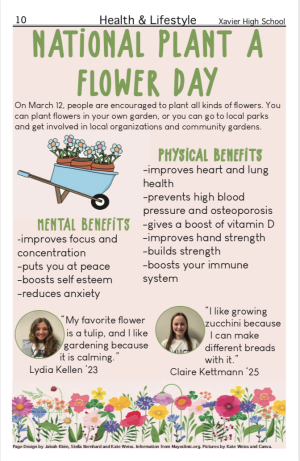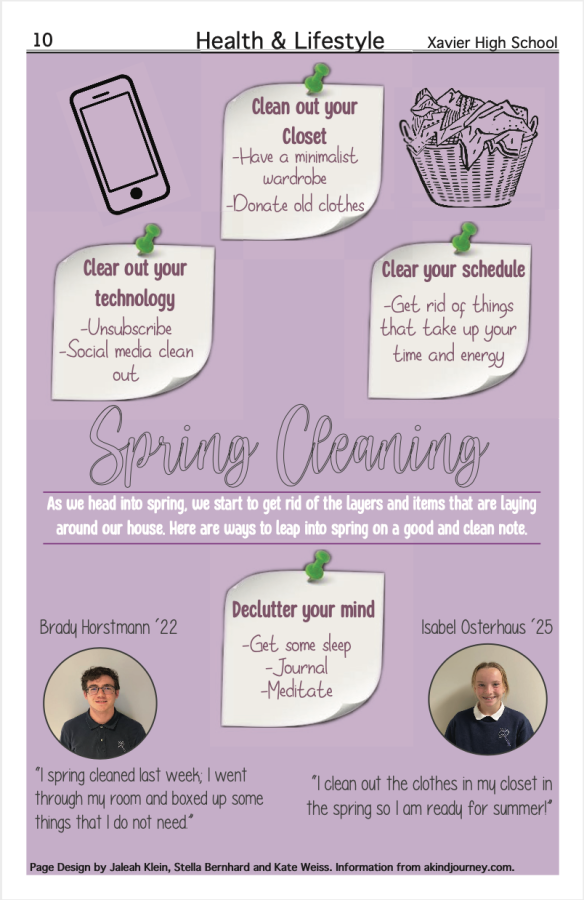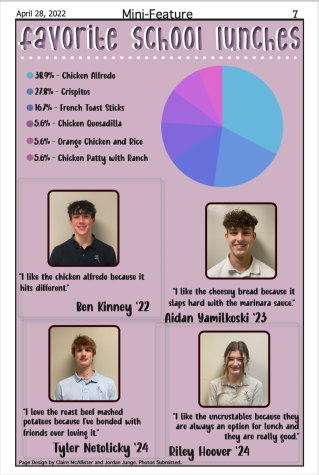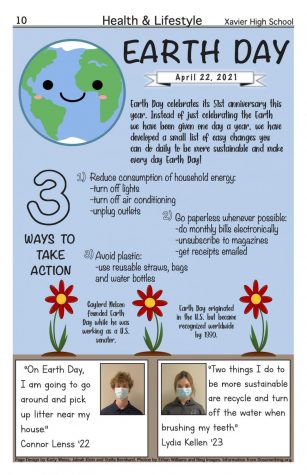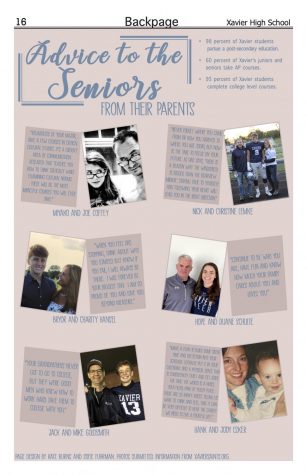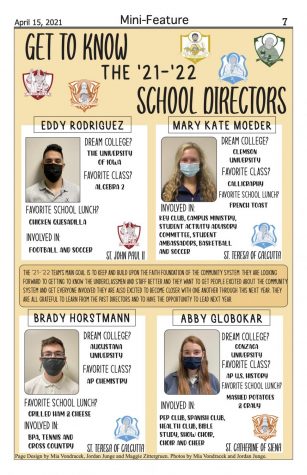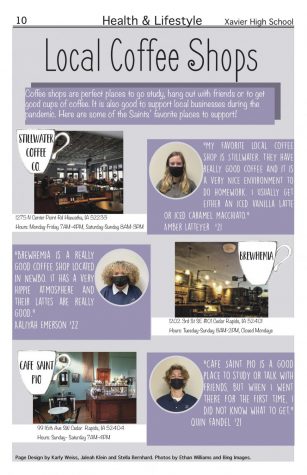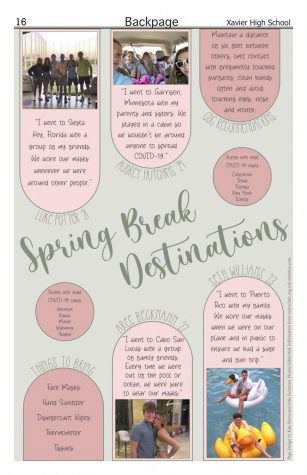You are not oppressed vs You do not know oppression
February 7, 2017
On January 20, Donald Trump was sworn in as the 45th President of the United States. Less than 24 hours later, thousands of people came out to the National Mall to protest various forms of oppression in the United States. This awesome example of the right to protest given to us in the Constitution made me think. It goes without saying that a number of people in our country feel oppressed by some tyrannical force that doesn’t exist. I feel it is important for this notion to be dismissed. Other people having opinions different than yours does not mean you are oppressed; it means you are the opposite of oppressed because you live in a nation that allows free expression of thought. Although it may sound rude and blunt to some people, if you live in the United States, you are not oppressed.
On the day of President Trump’s Inauguration, I had a classmate tell me, “You’re in great shape if you’re a white male in America.” After hearing this comment I thought, “What rights do I have that other people don’t?” I couldn’t think of any. Everybody in our country is allowed to go to school and choose their future. Every person is allowed to vote if they are 18 or older. Nobody can be denied medical care. Nobody is killed or thrown in jail by the government because they are different, or they dissent. The list goes on and on. I doubt anyone can find a right in America that I have and they don’t. Since this is the case, why do so many people complain that they are oppressed?
Let’s get something clear. I am not privileged (in the sense of the “white privilege” concept). It is ignorant to suggest that everything I have is a result of a Y chromosome and my skin color. My grandparents were immigrants trying to escape the effects of World War II. My mom worked three jobs to pay for college. My parents started a small business while trying to raise four kids. Their small business makes my dad pay more taxes. On average, I work 20 hours a week in addition to everything else, just to pay for college next year. The very idea that I can’t understand something because I am white and male is inherently racist and sexist. How dare you tell me what I have is a result of this “privilege.”
America is not perfect; everybody knows that. Now, every word preceding this does not negate the fact that there are racist and sexist people in our country. However, to claim that America as a whole oppresses women and minorities is ridiculous. Women, African Americans, immigrants, and any other minority are not going to suddenly lose their rights simply because one man is our president. Complaining about it, rioting, and pushing ideology down throats is not going to win support. Focusing on fighting oppression where true oppression does not exist will cause nothing but animosity.
Instead, we should focus on combating oppression in nations where it actually exists; where young girls are still given away to be brides without their consent; where young women are shot, simply because they want an education; where gay people are killed for something that they cannot change; where a woman’s sole purpose is to serve her husband. Those are places of true oppression. The United States of America is not one of them.
Versus
Privilege: a special right, advantage, or immunity granted or available only to a particular person or group of people.
It is clear that by being born in the United States of America, we all share certain privileges. That does not negate the fact that oppression still exists within America.
The fact is that minorities, women, members of the LGBTQ community, and many more groups of people have been, and continue to be, oppressed in America.
Oppression: prolonged cruel or unjust treatment or control.
African American people have a history of oppression in America, and while we have come a very long way, there is still a struggle. An article in The Washington Post said, “According to the most recent census data, there are nearly 160 million more white people in America than there are black people. White people make up roughly 62 percent of the U.S. population but only about 49 percent of those who are killed by police officers. African Americans, however, account for 24 percent of those fatally shot by the police despite being just 13 percent of the U.S. population. As The Post noted in a new analysis published last week, that means black Americans are 2.5 times as likely as white Americans to be shot and killed by police officers.” Simply having white skin is an advantage in America. That is not to say the success of all white people is due to their skin color, but rather, one should recognize the privilege that comes with being white, or male, or born into a wealthy family. With this understanding, it is also important to have the capacity to empathize with people who were not born into those situations and do not share in the same privilege.
Women in America are oppressed. In a study from Yale University, they “…asked more than 100 science faculty members at academic institutions across the country to evaluate one of two student résumés. The résumés were identical except for one small part: The candidate’s name was either John or Jennifer. Despite both candidates having the exact same qualifications and experience, science faculty members were more likely to perceive John as competent and select him for a hypothetical lab manager position. It didn’t stop there; female and male science faculty members alike offered John a higher salary than they did Jennifer and were more willing to offer him mentoring opportunities. The discrepancy in John and Jennifer’s treatment is important because women are woefully underrepresented in STEM fields, especially in engineering and computing. Gender bias contributes to scenarios in which women like “Jennifer” are evaluated as less competent, less hireable, and less valuable than identically qualified male counterparts.” Being a man gives a person an advantage when being considered for hiring, salary raises, and other opportunities. It is true that women around the world are being killed and denied an education, but women in America are oppressed, too. The severity of distant oppression does not lessen the oppression here.
According to the Advocate, in the first 11 months of 2016, 26 transgender people were murdered, making it the deadliest year on record for transgender people. Almost all of the victims were transgender minorities. Also, according to the Trevor Project, 40% of transgender adults reported having made a suicide attempt, and LGBTQ youth are four times more likely to attempt suicide than straight youth. In Idaho, Montana, North Dakota, South Dakota, Wyoming, Nebraska, Kansas, Oklahoma, Texas, Arizona, Alaska, Louisiana, Arkansas, Missouri, Alabama, Mississippi, Georgia, Florida, South Carolina, North Carolina, Tennessee, Virginia, West Virginia, Kentucky, Ohio, Indiana, Michigan, and Pennsylvania there are no employment nondiscrimination laws, meaning people are not protected by the law and can be fired for something they cannot change. While it is amazing that same-sex marriage is now legal in all 50 states, the fight for equality is not done in 31 states. Although I am gay, I recognize and acknowledge my privilege as a white male, and continue to aid in the fight against oppression of not only LGBTQ persons, but all oppressed groups.
I understand there is terrible oppression around the world, but that does not mean that it is not present in America. Many countries struggle with poverty and hunger, but that does not mean there are not hungry people in the United States as well. The fact that oppression is stronger in other places does not mean the oppression that occurs here in America is not an ongoing dilemma. Although you may not see it, and in fact you may even deny it, members of marginalized groups in America feel differently.
As Martin Luther King Jr. said, “An injustice anywhere is a threat to justice everywhere.” We need to have the ability to see the oppression that happens in our country and around the world, and work together to abolish it all. We need to, as a nation, have the compassion and respect to heed the voices of marginalized groups in our society, instead of telling them what their lives are and are not. This is not an issue that should be swept under the rug. Whether you experience it or not, oppression is real and it is happening here.


